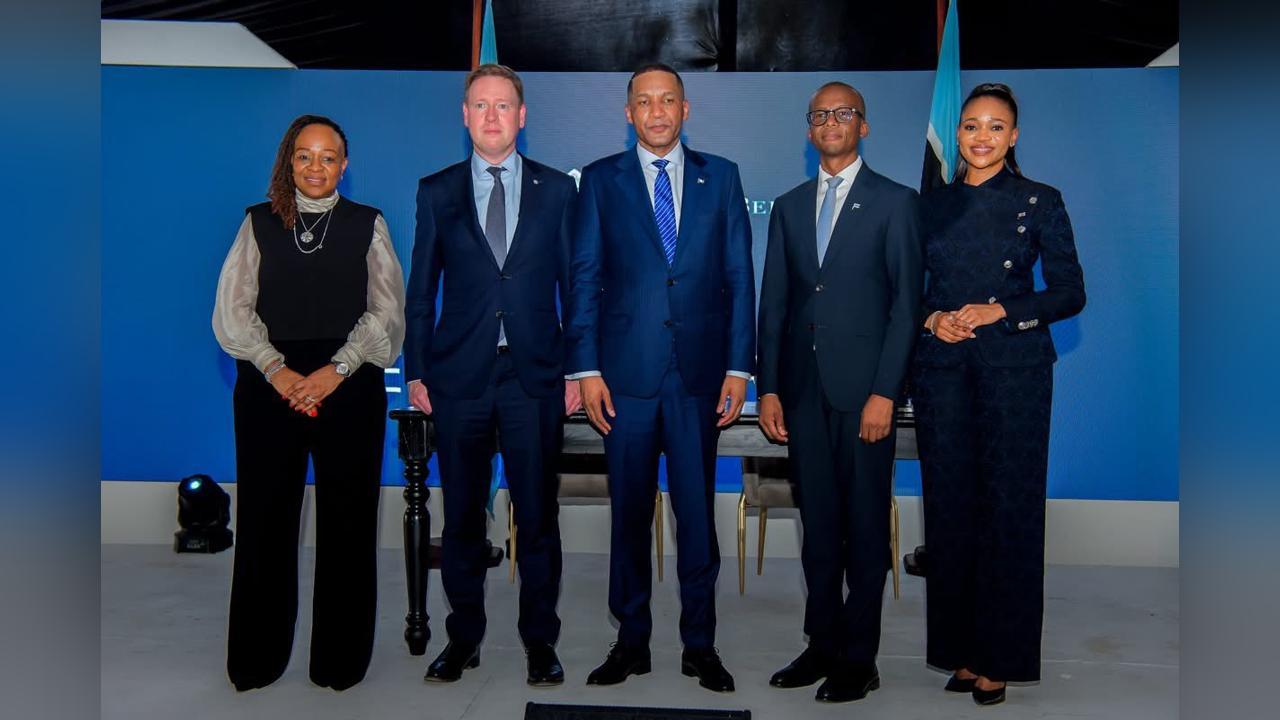Africa-Press – Botswana. The De Beers Group Sustainability report, which was launched Thursday in Gaborone, reflects on the progress towards the company’s ‘Building Forever’ sustainability goal, with key highlights that include achieving financial inclusivity.
The 2025 report focuses on areas such as livelihoods, nature, climate change and provenance, areas that are identified as priorities for De Beers Group’s sustainability work as part of a mid-term review of the company’s Building Forever sustainability framework initiated last year.
Discussions at this year’s launch underscored the importance of sustainable finance in unlocking opportunities for SMMEs, driving job creation and bolstering economic diversification and ensuring that diamonds beneficiation extended beyond mining operations.
Social Impact and Sustainability Diamond Trading vice president, Ms Otsile Mabeo reaffirmed De Beers’ commitment to improving livelihoods of communities by creating sustainable entrepreneurial opportunities for them.
“At De Beers sustainability is embedded in every decision we make from how we approach mining, how we invest in communities and how we promote supply chains,” said Ms Mabeo.
She said De Beers had established entrepreneurship development as a key deliverable to help advance the economy and promote economic diversification towards developing sustainable livelihoods.
Ms Mabeo said DeBeers had taken steps to minimise its foot print and pioneer solutions to help address the global climate crisis.
She said the company looked to safeguard and restore ecosystems and drive impactful partnerships.
Held under the theme: Finance and Impact: How Can Sustainable Finance Launch Entrepreneurs and Boost Small Businesses in Botswana, a panel discussion featuring some of the DeBeers’ partners – Stanbic Bank, Tokafala and others including German International for International Corporation (GIZ) and First National Bank pitched ideas on nurturing Small Micro and Medium Enterprises (SMMEs) improving market access, establishing supply chains and financing of SMMEs.
A panelist, Stanbic Bank’s head of Citizen Economic Empowerment, Ms Kushata Chilisa-Reign, rooted the idea that SMMEs should be nurtured through well-developed incubators, adding that as long as market access from infancy stage remained a challenge, development of SMMEs from small to large enterprises would remain a daunting task.
She said multiple products targeting local entrepreneurs were prone to low survival rate due to managing diverse products hence called for the empowerment of SMMEs and improvement of market accessibility.
GIZ’s regional development advisor, Ms Sefalana Lobelo, said the organisation had created pathways for sustainable entrepreneurship and that GIZ would continue to look into various ways to revolve funds for impactful programmes.
Tokafala Enterprise Development Programme country director, Ms Montle Phuthego, said the programme had made strides in developing young people and females for employability opportunities and establishing their own enterprises.
She said Tokafala had done well in mentoring and capacity building using several tools and that so far, 12 000 jobs had been created through the initiative.
An entrepreneur and Tokafala programme beneficiary, Mr Kago Dichaba, called for orderly accounting and book keeping in business, adding that financiers were attracted to place their investment where there was no chaos while Fist National Bank’s business development lead, Mr Resego Keipidile concurred that it was difficult for SMMEs to access sustainable finance.
For More News And Analysis About Botswana Follow Africa-Press






